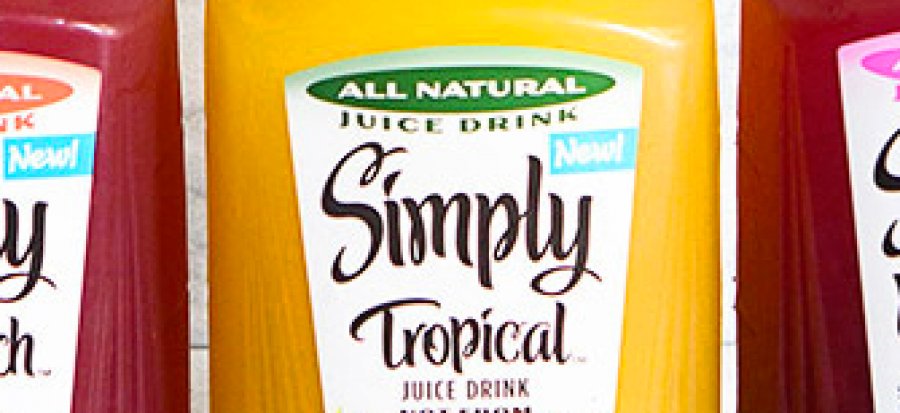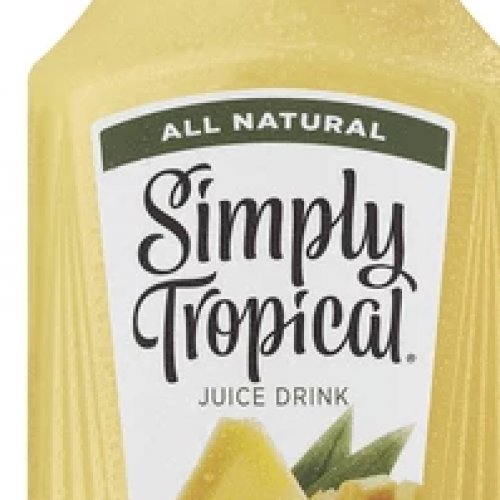The Simply Tropical Juice PFAS Lawsuit Explained

In recent news, a class-action lawsuit has been filed against The Coca-Cola Company and its subsidiary, The Simply Orange Juice Company, regarding their product, Simply Tropical juice. The lawsuit alleges that the juice, marketed as "all natural" and "healthy," is contaminated with toxic PFAS (Per- and Polyfluoroalkyl Substances) at levels "hundreds of times" above the federal advisory limits for drinking water. This article aims to provide a comprehensive overview of the Simply Tropical juice PFAS lawsuit, including the background of Simply Orange Juice Company, the allegations and claims, potential health and environmental risks associated with PFAS, the status of the lawsuit, Coca-Cola's response, expert opinions, similar lawsuits and precedents, consumer rights and safety regulations, and more.
Background of Simply Orange Juice
Simply Orange Juice Company, a subsidiary of The Coca-Cola Company, was established in 2001 with the goal of providing consumers with refreshing and authentic orange and other fruit juice experiences. The brand gained recognition for its commitment to using only the best-quality fruits, carefully selected and squeezed to extract pure juice without any added pulp or additives. Simply Orange Juice Company employs minimal processing and pasteurization techniques to maintain the freshness, flavor, and goodness of real fruits in its juice range. The brand's transparency in labeling and marketing has resonated with health-conscious consumers who prioritize natural and wholesome products. Simply Orange Juice Company offers a wide range of juices, including Simply Tropical, Simply Lemonade, Simply Limeade, Simply Grapefruit, and more.
Allegations and Claims
On December 28, 2022, a class-action lawsuit was filed against The Coca-Cola Company and Simply Orange Juice Company in the U.S. District Court of New York. The lawsuit alleges that Simply Tropical juice, marketed as "all natural," contains toxic PFAS at levels far exceeding the federal advisory limits for drinking water. PFAS are a group of manmade chemicals known as "forever chemicals" due to their persistence in the environment. Exposure to PFAS has been linked to various health issues, including liver damage, kidney cancer, thyroid disease, immune system dysfunction, and developmental effects in infants and children. The plaintiff, Joseph Lorenz, ordered independent third-party testing on Simply Tropical juice, which revealed the presence of PFAS compounds such as Perfluoro Octanoic Acid (PFOA) and Perfluorooctane Sulfonic Acid (PFOS) at levels "hundreds of times" above what the Environmental Protection Agency (EPA) deems safe for drinking water.
Potential Health and Environmental Risks Associated with PFAS

PFAS, or Per- and Polyfluoroalkyl Substances, are a group of manmade chemicals that have been widely used in various industrial and consumer products for their water, grease, and heat resistance properties. These chemicals are commonly found in products such as non-stick cookware, waterproof fabrics, food packaging, and firefighting foams. PFAS are known as "forever chemicals" because they do not easily break down in the environment and can persist for long periods. The potential health risks associated with PFAS exposure include liver damage, kidney cancer, thyroid disease, immune system dysfunction, developmental effects in infants and children, and reproductive and hormonal disorders. PFAS can also bioaccumulate in wildlife and humans, leading to long-term environmental contamination and potential harm to ecosystems.
Overview of the Lawsuit
The class-action lawsuit against The Coca-Cola Company and Simply Orange Juice Company alleges that Simply Tropical juice, marketed as "all natural," contains toxic PFAS at levels "hundreds of times" above the federal advisory limits for drinking water. The lawsuit claims that the presence of PFAS in the juice contradicts the brand's representations of being "transparent, natural, and simple." The plaintiff argues that the labeling and marketing of Simply Tropical juice, including claims of "all natural ingredients" and "nothing to hide," mislead consumers into believing that the product is free from synthetic ingredients such as PFAS. The lawsuit seeks monetary compensation and a jury trial for damages caused by the alleged deception.
Status of the Lawsuit
As of now, the Simply Tropical juice PFAS lawsuit is awaiting a verdict in the U.S. District Court of New York. No ruling or settlement has been reached at this time. It is important to note that the outcome of the lawsuit will determine the course of legal actions and potential compensation for affected consumers. Those who have purchased Simply Tropical juice are advised to keep their receipts in case they are needed to file a claim for reimbursement in the future.
Coca-Cola's Response to the Allegations
In response to the allegations, a spokesperson for The Coca-Cola Company stated, "We are aware of the lawsuit, which focuses on our Simply Tropical product. We stand by the quality of our products." While the company has not provided further details or comments regarding the specific allegations, it is clear that they maintain confidence in the quality and safety of their products.
Expert Opinions Regarding PFAS in Simply Orange Juice
According to Tom Neltner, the chemicals policy director of the Environmental Defense Fund, it is difficult to determine exactly how PFAS residues ended up in Simply Tropical juice. Neltner suggests that the chemicals could have contaminated the water used in the juice, the fruits themselves, or the packaging. He believes that it is unlikely that the company intentionally added PFAS to the juice, as the toxicity levels would likely be much higher if that were the case. Neltner emphasizes the importance of ongoing testing and monitoring of PFAS in food and beverages to ensure consumer safety.
Similar Lawsuits and Precedents
The Simply Tropical juice PFAS lawsuit is not the first of its kind. In recent years, there have been several high-profile lawsuits involving the presence of PFAS in food and beverage products. For example, popular period underwear brand Thinx faced a lawsuit alleging the use of PFAS compounds in their products. Fast-food chains like McDonald's and Burger King have also been sued for incorporating PFAS in their packaging materials. These lawsuits highlight the increasing concern and legal action surrounding the presence of PFAS in consumer goods.
Consumer Rights and Safety Regulations
Regulatory bodies play a crucial role in ensuring product safety and protecting consumer rights. In the United States, the Environmental Protection Agency (EPA) sets health advisory levels for certain PFAS compounds in drinking water and conducts research on the health hazards of PFAS exposure. The Food and Drug Administration (FDA) monitors the presence of contaminants, including PFAS, in food and takes action if necessary to protect public health. The European Chemicals Agency (ECHA) regulates the safe use of chemicals within the European Union (EU) and sets restrictions and guidelines for their use to protect human health and the environment. These regulatory bodies work to establish safety standards and guidelines to protect consumers from potential harm.
Conclusion
According to business law experts who write for us on law, the Simply Tropical juice PFAS lawsuit against The Coca-Cola Company and Simply Orange Juice Company sheds light on the presence of toxic PFAS in consumer products. The allegations of misleading marketing and the potential health risks associated with PFAS highlight the importance of transparency and accountability in the food and beverage industry. As the lawsuit progresses, it will be interesting to see how the court determines liability and potential compensation for affected consumers. In the meantime, consumer awareness and advocacy play a vital role in holding companies accountable and promoting safer products for all.
More to Read:
Previous Posts:







